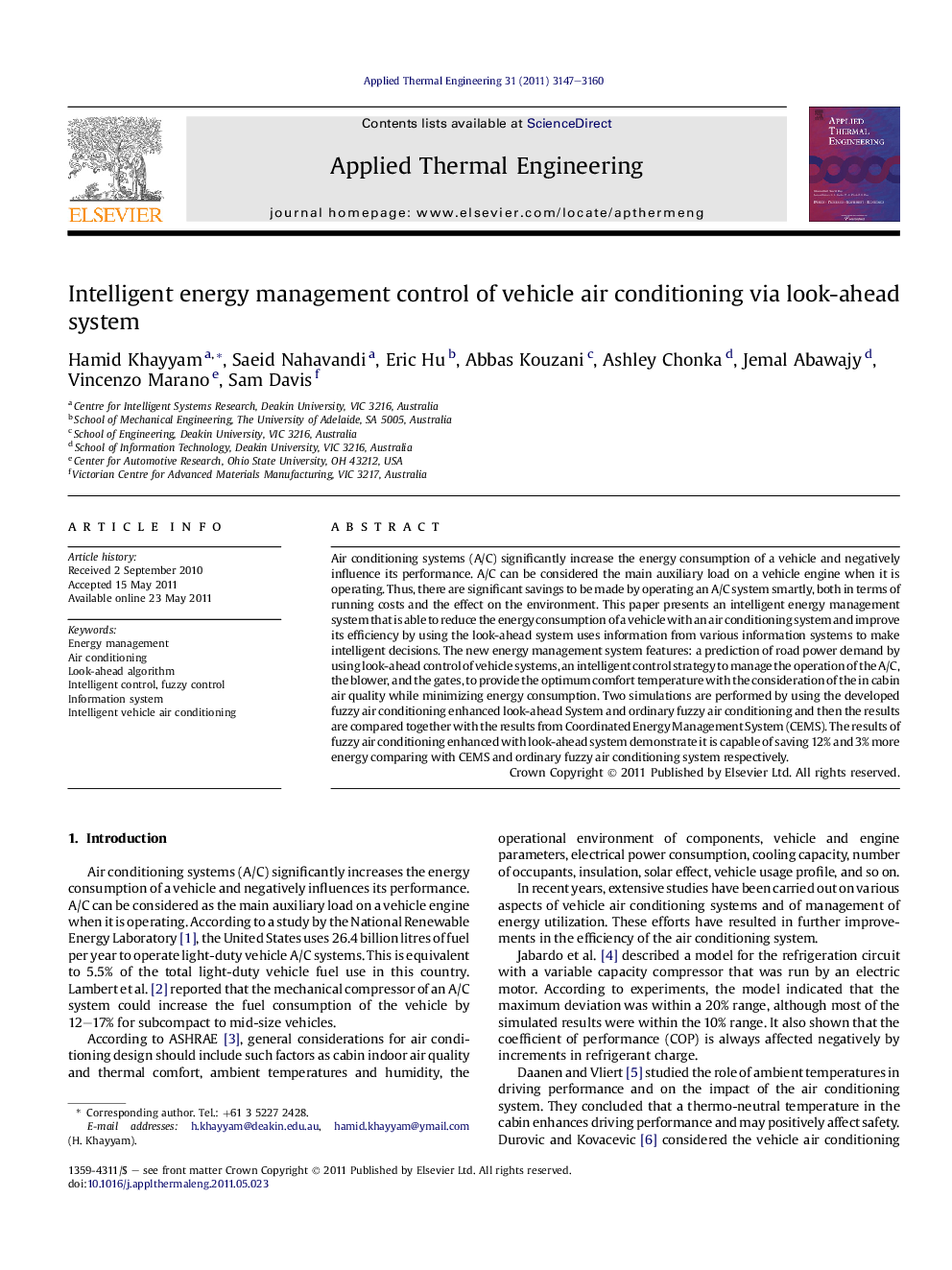| Article ID | Journal | Published Year | Pages | File Type |
|---|---|---|---|---|
| 647650 | Applied Thermal Engineering | 2011 | 14 Pages |
Air conditioning systems (A/C) significantly increase the energy consumption of a vehicle and negatively influence its performance. A/C can be considered the main auxiliary load on a vehicle engine when it is operating. Thus, there are significant savings to be made by operating an A/C system smartly, both in terms of running costs and the effect on the environment. This paper presents an intelligent energy management system that is able to reduce the energy consumption of a vehicle with an air conditioning system and improve its efficiency by using the look-ahead system uses information from various information systems to make intelligent decisions. The new energy management system features: a prediction of road power demand by using look-ahead control of vehicle systems, an intelligent control strategy to manage the operation of the A/C, the blower, and the gates, to provide the optimum comfort temperature with the consideration of the in cabin air quality while minimizing energy consumption. Two simulations are performed by using the developed fuzzy air conditioning enhanced look-ahead System and ordinary fuzzy air conditioning and then the results are compared together with the results from Coordinated Energy Management System (CEMS). The results of fuzzy air conditioning enhanced with look-ahead system demonstrate it is capable of saving 12% and 3% more energy comparing with CEMS and ordinary fuzzy air conditioning system respectively.
► An intelligent control of vehicle air conditioning via a look-ahead system, which is able to reduce the energy consumption of a vehicle. ► To the reduce the energy consumption of a vehicle with air conditioning, and to predict the road power demand, is to use a look-ahead control within vehicle system. ► Energy management uses information from various systems in order to make intelligent decisions.
